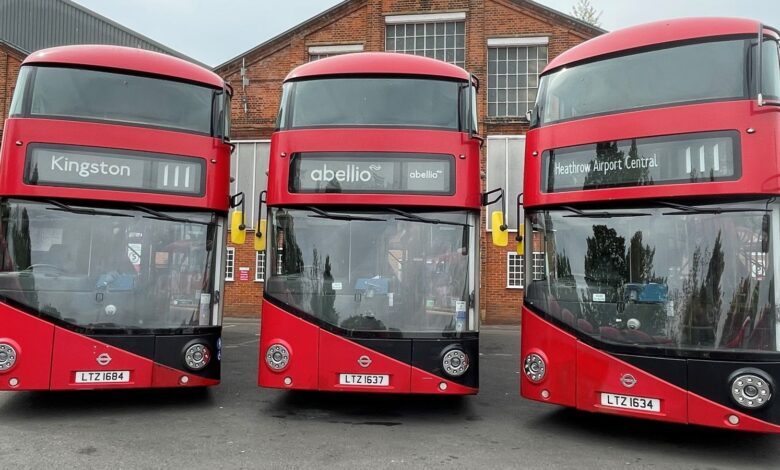
It has happened to most people waiting for a specific bus in a busy city – you stand around for ages only for three to turn up at once.
This phenomenon is known as “bus bunching”, and it can be annoying.
To try to alleviate the problem, UK operator First Bus, which runs bus services across the UK, has turned to artificial intelligence (AI) powered software to design and automatically update its timetables.
“Bus timetables are quite complex, because we’ve got 4,000 buses throughout the UK, and they’re out for typically 16 hours a day,” says Simon Pearson, chief commercial officer at First Bus. “Getting them to run on time is one heck of a challenge.”
Before the use of AI, Mr Pearson says that bus scheduling “was a lot more manual, and it was a lot slower”. It was in fact such a complicated job that First Bus would typically only change timetables three times a year.
Now AI’s greater processing power and ability to learn enables the company to alter timetables more often if needed.
It can also make automatic adjustments on any given day if required by road congestion, which, the company says, helps to prevent bus services bunching up.
First Bus, part of Aberdeen-based First Group, began introducing the AI technology in trial areas including Bristol, Glasgow and West Yorkshire back in November 2022.
Mr Pearson says that it has resulted in 20% more punctuality during some peak periods, and that the firm is now rolling out the AI across all its UK routes. However, this level of improvement has not been enough to satisfy passengers in some of the trial locations, who report that the bus services remain irregular.
According to Mr Pearson the new responsive scheduling reduces the stress for bus drivers, and that local governments – which often subsidise services – can save money thanks to better optimisation of bus numbers.
“The business case for this is strong,” adds Mr Pearson.
The charity Bus Users, which campaigns for more and better bus services, says that whatever new method is used to devise timetables, passengers need to be informed of changes.
“From the passenger perspective, the method used to compile timetables is less important than ensuring the information put out is accurate, up to date and available in a range of accessible formats,” says Bus Users’ chief executive Claire Walters.
“What matters even more is that the timetables themselves are based on the transport needs of the communities they serve.”
These views were echoed by Transport Focus, the independent watchdog for transport users. “It is vital that bus operators communicate any changes effectively with passengers who rely on their service,” says Transport Focus director David Sidebottom.
Source: BBC













